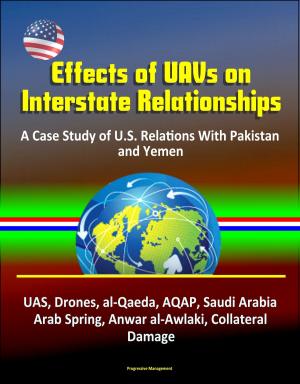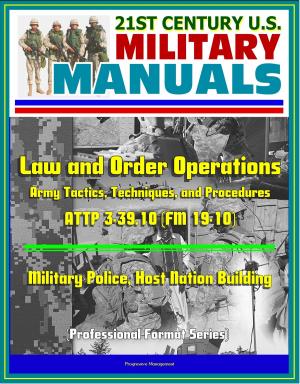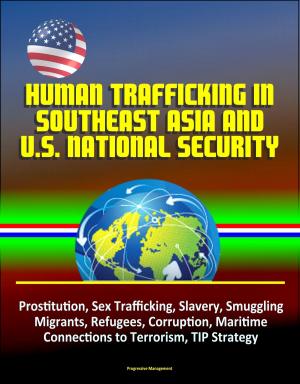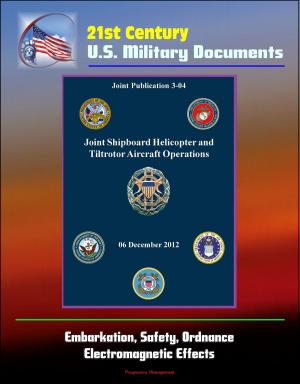A Historical Analysis of United States Prisoner of War (POW) / Missing in Action (MIA) Repatriation and Remains Recovery - World War II, Korea, Vietnam Wars, Philip Corso, Eisenhower, Le Duc Tho
Nonfiction, History, Military, Vietnam War, Asian, United States| Author: | Progressive Management | ISBN: | 9781310776618 |
| Publisher: | Progressive Management | Publication: | April 20, 2016 |
| Imprint: | Smashwords Edition | Language: | English |
| Author: | Progressive Management |
| ISBN: | 9781310776618 |
| Publisher: | Progressive Management |
| Publication: | April 20, 2016 |
| Imprint: | Smashwords Edition |
| Language: | English |
This excellent report has been professionally converted for accurate flowing-text e-book format reproduction. This study investigates the historical record concerning the repatriation of American service members and the recovery of remains during World War II, Korea, and the Vietnam War. The issue of accounting for American service members has been proclaimed as a matter of the highest national priority and that the fullest possible accounting will be achieved. In reality, the results of U.S. policy fall short of the stated intent. This paper focuses on evidence from the historical record that illustrates that less than a full accounting occurred. The thesis concludes that there has not been a cover-up or conspiracy involving this issue through the years. Rather, there has been a great deal of sloppiness, secrecy, and evasion on the political level, but nothing more. The research identifies several recurring themes consistent with each conflict that shaped the ability and commitment of the United States to fully carry out their POW/MIA and remains policy. With a better understanding of what led to less than a full accounting, perhaps future American conflicts will result in an accounting commensurate with America's highest national interest.
When American soldiers lay their lives on the line in the service of their country, the nation owes them much, but one thing in particular, the certainty that he or she will not be forgotten. The obligation that drives so many soldiers to sacrifice themselves or endure the hardships of capture in the interests of the nation is mirrored by the obligation of the people to provide an accounting of those that were held prisoner of war or those that will never return. This thesis deals with perhaps one of the most controversial and enduring issues to emerge from any armed conflict, the repatriation of American service members. At the heart of the repatriation issue is the conflict between accepting the probability of death when the possibility of life still remains. Though it has received the most attention, the problem of recovering or returning American service members is not unique to the Vietnam conflict. In the last three major conflicts fought by American forces involving a large number of American prisoners of war/missing in action (POW/MIA), evidence exists that some American service members were not repatriated.
This excellent report has been professionally converted for accurate flowing-text e-book format reproduction. This study investigates the historical record concerning the repatriation of American service members and the recovery of remains during World War II, Korea, and the Vietnam War. The issue of accounting for American service members has been proclaimed as a matter of the highest national priority and that the fullest possible accounting will be achieved. In reality, the results of U.S. policy fall short of the stated intent. This paper focuses on evidence from the historical record that illustrates that less than a full accounting occurred. The thesis concludes that there has not been a cover-up or conspiracy involving this issue through the years. Rather, there has been a great deal of sloppiness, secrecy, and evasion on the political level, but nothing more. The research identifies several recurring themes consistent with each conflict that shaped the ability and commitment of the United States to fully carry out their POW/MIA and remains policy. With a better understanding of what led to less than a full accounting, perhaps future American conflicts will result in an accounting commensurate with America's highest national interest.
When American soldiers lay their lives on the line in the service of their country, the nation owes them much, but one thing in particular, the certainty that he or she will not be forgotten. The obligation that drives so many soldiers to sacrifice themselves or endure the hardships of capture in the interests of the nation is mirrored by the obligation of the people to provide an accounting of those that were held prisoner of war or those that will never return. This thesis deals with perhaps one of the most controversial and enduring issues to emerge from any armed conflict, the repatriation of American service members. At the heart of the repatriation issue is the conflict between accepting the probability of death when the possibility of life still remains. Though it has received the most attention, the problem of recovering or returning American service members is not unique to the Vietnam conflict. In the last three major conflicts fought by American forces involving a large number of American prisoners of war/missing in action (POW/MIA), evidence exists that some American service members were not repatriated.















